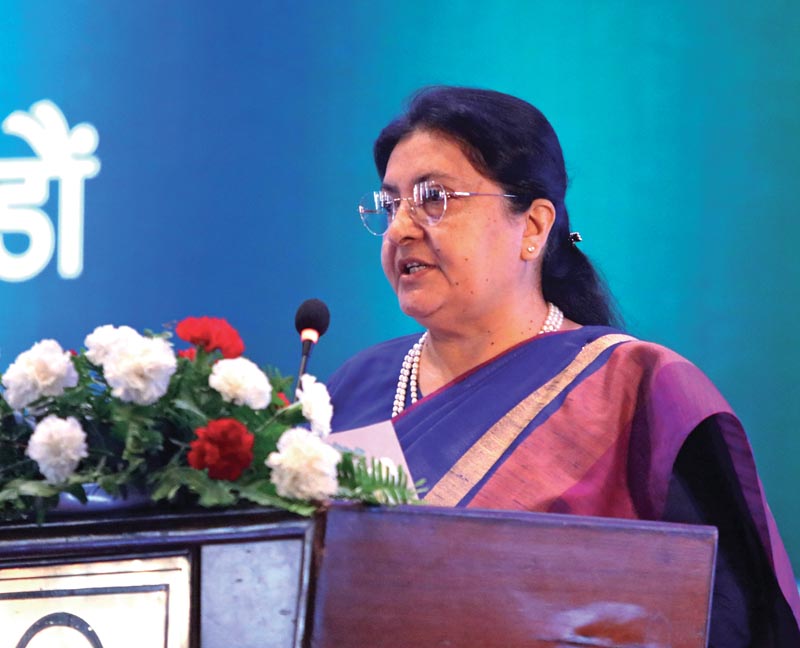‘Integrate disabled persons into mainstream development’
Kathmandu, December 2
President Bidhya Devi Bhandari has underscored the need to make people with disabilities self-dependent by integrating them into mainstream development.
In a message issued on the eve of International Day of Persons with Disabilities, the head-of-state said differently-abled persons needed ‘rights, not pity’. “Society’s perception of and behaviour towards differently-abled persons have not changed despite various efforts from the government,” reads the message.
“Governmental and non-governmental organisations should take special initiative to provide them good education and health facilities in line with the United Nations Convention on the Rights of Persons with Disabilities,” President Bhandari said in the message.
She urged the government to increase the access of differently-abled persons to education, health and employment, develop disabled-friendly infrastructure, and ensure their participation in decision-making by making necessary arrangements of resources and means for this purpose.
The International Day of Persons With Disabilities will be observed tomorrow with various awareness-raising programmes in the country. ‘Empowering Persons With Disabilities and Ensuring Inclusiveness and Equality’ is the national theme for this year.
Around one billion people globally have some form or the other of disability, according to the United Nations. They constitute 15 per cent of the world’s population and yet the world’s largest minority group faces many barriers to inclusion in key aspects of society.
According to the 2011 census, about two per cent (513,321) of the total population of the country is living with one or the other kind of disability in Nepal.
Of them, 280,086 are males and 233,235 are females. Physical disability constitutes 36.3 per cent of the population with disability followed by blindness/low vision (18.5 per cent), deaf/hard of hearing (15.4 per cent), speech problem (11.5 per cent), multiple disability (7.5 per cent), mental disability (six per cent), intellectual disability (2.9 per cent) and deaf-blind (1.8 per cent).
Around 80 per cent of the disabled people in the country are illiterate and 95 per cent are unemployed.






